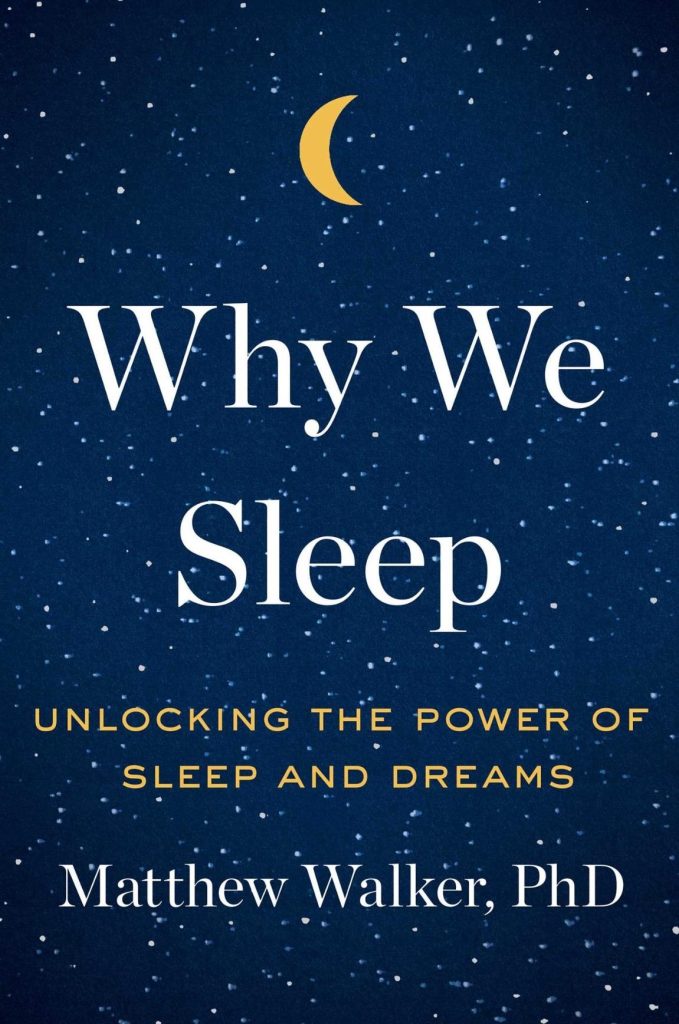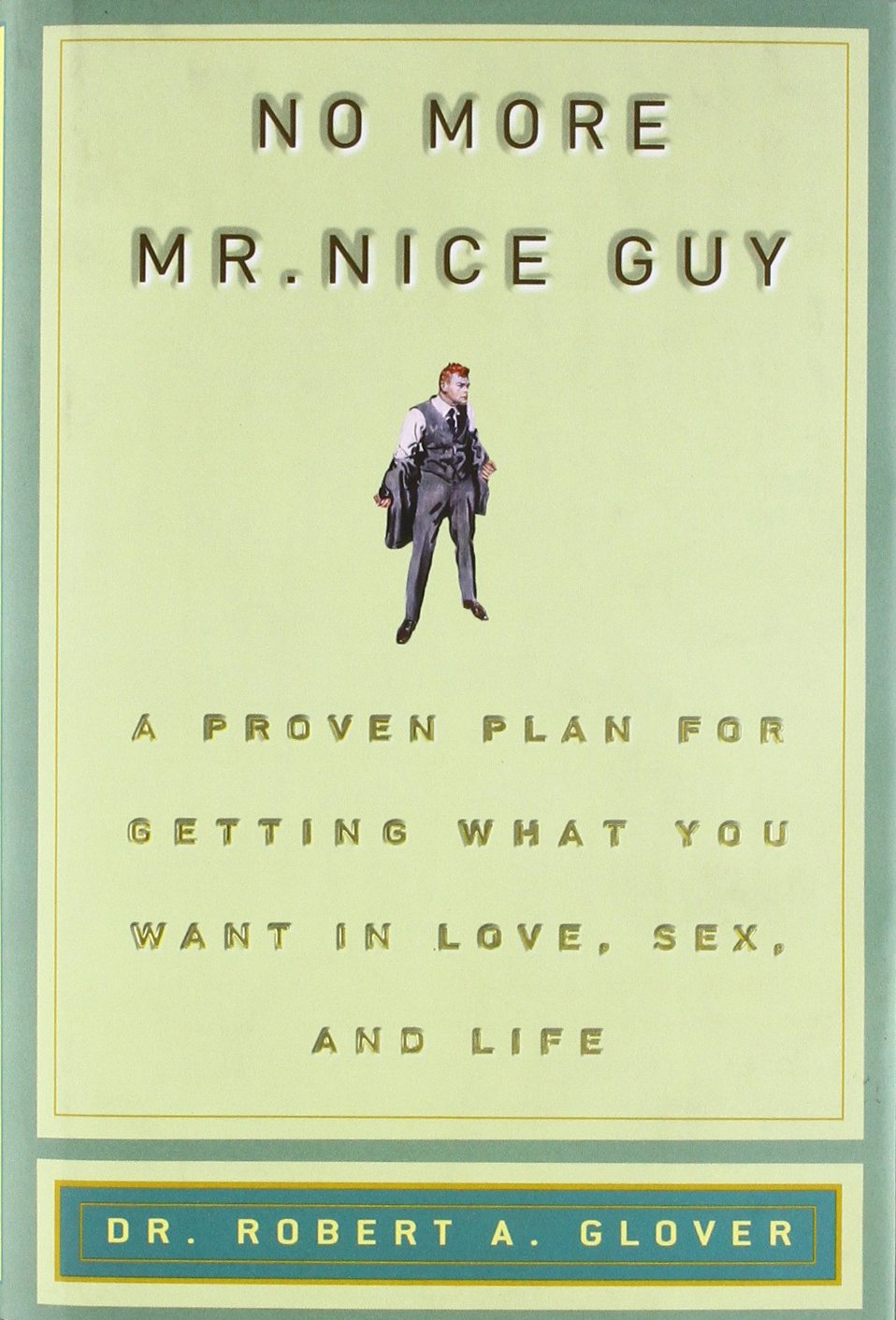
Buy The Book
Chapter
- ✦ To Sleep . . .
- ✦ Caffeine, Jet Lag, and Melatonin: Losing and Gaining Control of Your Sleep Rhythm
- ✦ Defining and Generating Sleep: Time Dilation and What We Learned from a Baby in 1952
- ✦ Ape Beds, Dinosaurs, and Napping with Half a Brain: Who Sleeps, How Do We Sleep, and How Much?
- ✦ Changes in Sleep Across the Life Span
- ✦ Your Mother and Shakespeare Knew: the Benefits of Sleep for the Brain
- ✦ Too Extreme for the Guinness Book of World Records: Sleep Deprivation and the Brain
- ✦ Cancer, Heart Attacks, and a Shorter Life: Sleep Deprivation and the Body
- ✦ Routinely Psychotic: R.E.M.-Sleep Dreaming
- ✦ Dreaming as Overnight therapy
- ✦ Dream Creativity and Dream Control
- ✦ things that Go Bump in the Night: Sleep Disorders and Death Caused by No Sleep
- ✦ iPads, Factory Whistles, and Nightcaps: What’s Stopping You from Sleeping?
- ✦ Hurting and Helping Your Sleep: Pills vs. therapy
- ✦ Sleep and Society: What Medicine and Education Are Doing Wrong; What Google and NASA Are Doing Right
- ✦ A New Vision for Sleep in the Twenty-First Century
- ✦ To Sleep or Not to Sleep
Why We Sleep: Unlocking the Power of Sleep and Dreams

About
The book delves into the vital role sleep plays in our lives, emphasizing its profound impact on our physical and mental health. Walker, a renowned neuroscientist and sleep expert, serves as a professor of neuroscience and psychology at the University of California, Berkeley. He brings over two decades of research experience to this comprehensive exploration of sleep.
The book is divided into four parts. Part one introduces the nature and science of sleep, discussing its necessity and its evolutionary significance. In part two, Walker examines the myriad benefits of sleep, from enhancing cognitive functions to boosting emotional well-being, while also highlighting the detrimental effects of sleep deprivation on health. Part three ventures into the realm of dreams, exploring their psychological and creative benefits. Finally, part four addresses societal issues related to sleep, including sleep disorders and the impact of modern technology on our sleep patterns.
Walker argues convincingly for the critical importance of sleep, presenting it as a cornerstone of health alongside diet and exercise. His insights aim to inspire a cultural shift toward valuing sleep, offering practical advice for improving sleep quality in our fast-paced world.

Spark
Learn
Review
✦ To Sleep . . .
Have you had enough rest this past week? Can you remember waking up feeling refreshed without needing caffeine? If not, you’re not alone. Many adults worldwide don’t get the recommended eight hours of sleep. This lack of rest can severely impact health, increasing cancer risk, disrupting blood sugar, and leading to heart issues. It also affects mental health, contributing to depression and anxiety.
When you’re tired, you might feel hungrier and eat more, a recipe for weight gain. Sleep deprivation can shorten your lifespan, contradicting the idea of “I’ll sleep when I’m dead.” Humans are unique in intentionally depriving themselves of sleep, leading to various health and societal issues. The World Health Organization has even declared a sleep loss epidemic in industrialized nations, where sleep has declined, correlating with rising physical and mental health issues.
Doctors are now encouraged to prescribe sleep for its health benefits, not sleeping pills, which can be harmful. Sleep is vital for overall wellness, impacting every organ and brain process. The question isn’t why we sleep but how every aspect of our biology benefits from it. Sleep enriches our ability to learn, regulates emotions, and supports physical health, making it essential for a longer, healthier life.
✦ Caffeine, Jet Lag, and Melatonin: Losing and Gaining Control of Your Sleep Rhythm
How does your body know when it’s time to rest? Two key factors dictate this. First, your internal 24-hour clock, located deep within your brain, sets a daily rhythm, making you feel sleepy or alert at certain times. Second, a chemical builds up in your brain, creating a “sleep pressure” that increases the longer you stay awake, making you feel more tired.
Your circadian rhythm, or natural daily cycle, influences not only your sleep-wake times but also your eating habits, emotions, body temperature, and hormone release. This internal clock is not precisely 24 hours but slightly longer, averaging around 24 hours and 15 minutes. Without external cues, like sunlight, our internal clocks would drift away from the 24-hour cycle.
Experiments have shown that, like plants, humans have an internal rhythm that persists even without light cues. However, sunlight helps reset our slightly inaccurate clocks to align with the Earth’s 24-hour day. This synchronization allows us to maintain regular sleep patterns and adjust to new time zones, although disruptions like jet lag occur when our internal clocks need time to adapt. Understanding these mechanisms can help manage and improve your sleep quality and overall well-being.
✦ Defining and Generating Sleep: Time Dilation and What We Learned from a Baby in 1952
What exactly defines sleep, and how do we generate it? Sleep is a complex state that involves cycles of brain activity, primarily characterized by R.E.M. (rapid eye movement) and non-R.E.M. stages. Each serves unique functions, from memory consolidation to physical recovery. The discovery of R.E.M. sleep in 1952, spurred by observing vivid eye movements in a sleeping baby, marked a breakthrough in understanding these cycles.
During sleep, time perception can alter, a phenomenon known as time dilation. This occurs because various brain regions responsible for processing time are less active, creating a sense of time passing differently than when awake. The sleep cycle repeats every 90 minutes, with R.E.M. periods lengthening as the night progresses, enriching the sleep experience.
Generating sleep involves a balance between sleep pressure and circadian rhythms. As you stay awake, sleep pressure builds, making you feel drowsy. Meanwhile, your internal clock dictates optimal times for sleep and wakefulness. Factors like light exposure and lifestyle choices can influence this balance, impacting sleep quality.
Understanding these processes highlights the intricate nature of sleep and its critical role in health, encouraging strategies to enhance sleep hygiene and harness its full restorative potential.
✦ Ape Beds, Dinosaurs, and Napping with Half a Brain: Who Sleeps, How Do We Sleep, and How Much?
Who sleeps, and how do different creatures rest? Sleep is universal across the animal kingdom, though it varies widely. Humans, for instance, build elaborate beds, while great apes construct simple sleeping platforms in trees. These structures hint at the evolutionary importance of safe, comfortable rest.
Dinosaurs, like modern birds and reptiles, likely had diverse sleep patterns. Some species may have slept in short bursts to remain vigilant against predators. Birds and aquatic mammals exhibit unihemispheric sleep, where one brain hemisphere rests while the other stays awake, allowing them to maintain awareness and perform essential functions.
The amount of sleep varies significantly among species. Elephants sleep around four hours, while some bats rest for almost twenty. Human adults typically require seven to nine hours, though individual needs differ. Sleep patterns change throughout life, with infants sleeping much longer and older adults often experiencing fragmented sleep.
Sleep serves crucial functions for all species, supporting brain plasticity, memory, and physical health. Understanding the diverse ways animals sleep highlights its evolutionary significance and reinforces the importance of prioritizing rest in human life. Exploring these differences can inspire better sleep practices, ensuring we meet our unique needs effectively.
✦ Changes in Sleep Across the Life Span
Sleep changes significantly throughout your life. In infancy, sleep is polyphasic, occurring in multiple bouts throughout the day and night. Babies can sleep up to 17 hours, though not continuously. As children grow, sleep becomes more consolidated into a single, longer nighttime rest, essential for development and learning.
Teenagers often experience a shift in their circadian rhythm, causing them to feel sleepy later at night and prefer waking up later in the morning. This biological change often conflicts with early school start times, leading to sleep deprivation.
In adulthood, sleep typically stabilizes, with most people needing seven to nine hours per night. However, work, stress, and lifestyle choices can impact sleep quality and duration. Prioritizing good sleep hygiene is crucial during these years to maintain overall health and cognitive function.
As you age, sleep patterns may change again, often becoming lighter and more fragmented. Older adults may experience a decrease in deep sleep and find it harder to stay asleep through the night. Napping can become more common, although maintaining a regular sleep schedule remains important.
Understanding these shifts helps emphasize the importance of adapting sleep habits to meet the changing needs at each life stage, supporting lifelong health and well-being.
✦ Your Mother and Shakespeare Knew: the Benefits of Sleep for the Brain
Your mother and Shakespeare had it right: sleep is vital for the brain’s health. During sleep, your brain engages in essential maintenance tasks that enhance cognitive abilities. It consolidates memories, strengthening what you learned during the day and discarding irrelevant information. This process aids in problem-solving and decision-making, making you more efficient and creative when awake.
Sleep also regulates emotions by recalibrating the brain’s emotional circuits. A good night’s rest helps manage stress and reduces the risk of mood disorders like anxiety and depression. Without sufficient sleep, the brain’s emotional centers become hyperactive, leading to increased irritability and emotional volatility.
Furthermore, sleep supports neural plasticity, the brain’s ability to adapt and reorganize itself. This adaptability is crucial for learning new skills and recovering from injuries. Sleep deprivation, on the other hand, impairs attention, focus, and reaction times, making everyday tasks more challenging and increasing the risk of accidents.
Prioritizing sleep is not just about feeling rested; it’s about nurturing your brain’s capacity to function at its best. Embracing the wisdom of sleep can lead to a sharper mind, better emotional balance, and overall improved mental health.
✦ Too Extreme for the Guinness Book of World Records: Sleep Deprivation and the Brain
Sleep deprivation is so severe that it’s no longer eligible for the Guinness Book of World Records. Going without sleep has profound effects on the brain. Even a single night of inadequate rest can impair memory, attention, and decision-making -. Over time, chronic sleep deprivation leads to more serious cognitive decline and emotional instability.
Your brain relies on sleep to clear out toxins and support neuron health. Without this cleansing process, toxins accumulate, increasing the risk of neurodegenerative diseases like Alzheimer’s. Sleep loss also disrupts communication between brain regions, leading to poor judgment and impulsive behavior.
Emotionally, lack of sleep heightens reactivity. The amygdala, responsible for processing emotions, becomes overactive, making you more prone to stress and negative moods. This imbalance can contribute to long-term mental health issues such as depression and anxiety.
Physical health isn’t spared either. Sleep deprivation affects the immune system, metabolism, and cardiovascular health, putting you at risk for various diseases. It’s not just about feeling tired; it’s about safeguarding your cognitive and emotional well-being. Prioritizing restful sleep is essential for maintaining a healthy, fully functioning brain.
✦ Cancer, Heart Attacks, and a Shorter Life: Sleep Deprivation and the Body
Lack of sleep does more than just make you feel tired—it has serious repercussions for your body. Consistently missing out on sleep can elevate your risk for cancer, as your immune system weakens and struggles to fight off malignancies. Inadequate sleep also disrupts blood sugar regulation, pushing you toward diabetes.
Your heart takes a hit too. Sleep deprivation raises blood pressure and increases the likelihood of heart attacks and strokes. The cardiovascular system relies on sleep to repair and rejuvenate, and without it, you’re on a path to serious heart issues.
Metabolism suffers as well. Sleep loss can lead to weight gain by increasing appetite and cravings for unhealthy foods. Hormones that regulate hunger, like leptin and ghrelin, become imbalanced, making it harder to maintain a healthy weight.
Overall, sleep deprivation shortens your lifespan. It accelerates the aging process and leaves you vulnerable to a host of diseases. Prioritizing sleep is crucial for protecting your health, ensuring your body can function optimally, and ultimately leading to a longer, healthier life. Embrace sleep as a vital component of well-being, not just a luxury.
✦ Routinely Psychotic: R.E.M.-Sleep Dreaming
During R.E.M. sleep, you enter a state that might seem routinely psychotic, marked by vivid dreams and a departure from reality. In this phase, your brain is highly active, yet your body is paralyzed to prevent you from acting out dreams. This bizarre state is essential for emotional and cognitive processing.
Dreams during R.E.M. sleep allow you to explore emotions and experiences in a safe, simulated environment, helping you process and integrate them into your waking life. This process can be therapeutic, offering solutions to problems and easing emotional pain.
R.E.M. sleep also enhances creativity, as your brain makes novel connections between disparate ideas. This dream state fosters innovation and insight, contributing to some of your most creative thoughts.
While in R.E.M. sleep, the brain experiences intense activity in areas related to vision and emotion, while logic and reasoning centers are less active. This imbalance explains the surreal and sometimes illogical nature of dreams, yet it plays a vital role in mental health.
Embrace R.E.M. sleep as a crucial component of your nightly rest, providing a playground for your mind to heal, grow, and innovate. Prioritizing this dream-rich phase is key to maintaining emotional balance and cognitive sharpness.
✦ Dreaming as Overnight therapy
Dreaming acts as a form of overnight therapy, providing a safe space for emotional healing. During R.E.M. sleep, you process and integrate emotional experiences, helping to alleviate stress and anxiety. This phase allows your brain to reframe difficult emotions, reducing their intensity and impact on your waking life.
Dreams offer a unique opportunity to revisit challenging situations without the stress hormones that accompany them when awake. This absence of stress hormones during R.E.M. sleep enables you to approach emotional issues with a calmer perspective, facilitating emotional resolution.
By working through emotions in dreams, you gain insights and clarity, which can lead to better emotional regulation during the day. This process supports mental resilience, helping you cope with life’s challenges more effectively.
Dreaming also fosters creativity by allowing your mind to explore new possibilities and connections. This creative exploration can inspire innovative solutions and fresh perspectives on problems.
Embrace the therapeutic power of dreaming as a natural way to process emotions and enhance mental well-being. Prioritizing sleep ensures you benefit from this nightly therapeutic session, promoting emotional balance and psychological health.
✦ Dream Creativity and Dream Control
Dreaming is a powerful catalyst for creativity, offering a space where your mind can wander freely. During dreams, the brain forges new connections between unrelated ideas, sparking innovative thoughts and solutions. This creative process can lead to breakthroughs that might not occur during waking hours, as the mind is liberated from conventional constraints and logic.
Lucid dreaming, where you become aware that you’re dreaming, provides an opportunity for dream control. In this state, you can consciously influence the dream’s narrative, exploring creative scenarios and ideas in a dynamic, interactive way. Lucid dreaming can enhance creativity further by allowing you to experiment with different outcomes and possibilities within the dream.
Harnessing the creative potential of dreams involves recognizing their value and encouraging lucid dreaming. Techniques like reality checks, keeping a dream journal, and setting intentions before sleep can increase the likelihood of experiencing lucid dreams.
Embrace the creative richness of dreams as a tool for innovation and problem-solving. By tapping into this subconscious playground, you can unlock new perspectives and ideas, enhancing both personal and professional pursuits. Prioritizing sleep and exploring dream control empowers you to make the most of this unique creative resource.
✦ things that Go Bump in the Night: Sleep Disorders and Death Caused by No Sleep
Sleep disorders disrupt not only your rest but also your health and safety. Conditions like insomnia, sleep apnea, and restless leg syndrome interfere with the ability to get quality sleep, leading to chronic fatigue and a host of health issues. Insomnia leaves you struggling to fall or stay asleep, impacting daily functioning and increasing stress levels.
Sleep apnea, characterized by interrupted breathing, deprives your body of oxygen, raising the risk of heart disease and stroke. It can also lead to excessive daytime sleepiness, impairing concentration and increasing accident risk. Restless leg syndrome causes uncomfortable sensations that urge you to move your legs, disrupting sleep and leaving you exhausted.
In extreme cases, lack of sleep can be fatal. Fatal familial insomnia, a rare genetic disorder, leads to total sleep deprivation and eventual death. Additionally, severe sleep deprivation can result in life-threatening errors, such as drowsy driving, which causes numerous accidents and fatalities.
Addressing sleep disorders is crucial for maintaining health and preventing dangerous consequences. Seeking medical advice, making lifestyle adjustments, and creating a conducive sleep environment can help manage these conditions. Prioritizing restful sleep ensures better health, safety, and quality of life.
✦ iPads, Factory Whistles, and Nightcaps: What’s Stopping You from Sleeping?
Modern life presents numerous obstacles to a good night’s sleep. Electronic devices like iPads emit blue light, which disrupts your circadian rhythm by suppressing melatonin production, making it harder to fall asleep. Reducing screen time before bed can help signal your body that it’s time to rest.
Irregular work hours, such as those dictated by factory whistles or shift work, can confuse your internal clock, leading to inconsistent sleep patterns and difficulty maintaining quality rest. Establishing a regular sleep schedule, even on days off, can help stabilize your sleep cycle.
Nightcaps, or alcohol before bed, may seem like a sleep aid, but they actually fragment sleep by disrupting R.E.M. cycles. Alcohol can lead to restless nights and reduced sleep quality, leaving you feeling tired the next day. Opting for non-alcoholic, calming beverages in the evening can promote better rest.
Environmental factors and lifestyle choices play significant roles in sleep quality. Creating a sleep-friendly environment, managing stress, and adopting healthy bedtime habits can mitigate these modern sleep disruptors. By addressing these common barriers, you can improve your sleep hygiene and enjoy more restorative nights of rest.
✦ Hurting and Helping Your Sleep: Pills vs. therapy
When struggling with sleep, the choice between medication and therapy can be crucial. Sleeping pills might offer short-term relief, but they often come with side effects and don’t address underlying issues. Dependence on these medications can develop, leading to a cycle of poor sleep without real improvement in sleep quality.
In contrast, cognitive behavioral therapy for insomnia (CBT-I) tackles sleep problems at their root. This approach helps you identify and change thoughts and behaviors that negatively impact sleep. Techniques include establishing a regular sleep schedule, creating a restful environment, and managing stress and anxiety that may interfere with rest.
CBT-I empowers you with tools and strategies for long-term sleep improvement, without the risks associated with medication. It focuses on building healthy sleep habits that can sustain you over time, fostering a more natural and restorative sleep experience.
Choosing therapy over pills promotes lasting change and better sleep health. Prioritizing strategies that address the core of sleep issues can lead to improved well-being and a more consistent, restful sleep pattern. Embrace therapy as a means to achieve healthier sleep without relying on medication.
✦ Sleep and Society: What Medicine and Education Are Doing Wrong; What Google and NASA Are Doing Right
Society often undervalues sleep, with medicine and education systems contributing to the problem. Medical professionals receive little training on sleep health, leading to underdiagnosis and mismanagement of sleep disorders. Schools start early, disregarding teenagers’ natural sleep cycles and contributing to widespread sleep deprivation among students.
In contrast, organizations like Google and NASA recognize the importance of sleep and have made strides to prioritize it. Google encourages flexible work hours and nap spaces, understanding that well-rested employees are more productive and creative. NASA invests in sleep research to ensure astronauts maintain optimal performance and health during missions, highlighting the critical role of rest in high-stakes environments.
By adopting practices that support healthy sleep, these organizations demonstrate the benefits of valuing rest. Encouraging later school start times and integrating sleep education into medical training could significantly improve public health and productivity.
Embrace a cultural shift that prioritizes sleep as essential to well-being and performance. Learning from progressive approaches can inspire broader societal changes, leading to healthier, more sleep-conscious communities. Recognize sleep as a foundational element of success, both individually and collectively.
✦ A New Vision for Sleep in the Twenty-First Century
Embrace a new vision for sleep in the modern world, recognizing it as a cornerstone of health and productivity. In today’s fast-paced society, sleep often takes a backseat, but understanding its critical role is essential for thriving in the twent y-first century. Prioritizing rest can lead to significant improvements in mental, emotional, and physical well-being.
To truly benefit from sleep, consider its impact on every aspect of life. From enhancing learning and memory to boosting mood and creativity, sleep offers a multitude of advantages. Aiming for quality sleep should be as important as diet and exercise in health routines.
Shift cultural attitudes to value sleep as a non-negotiable part of life. Encourage practices that support rest, like establishing regular sleep schedules and creating environments conducive to sleep. By integrating these habits, you can harness the full potential of sleep to enhance daily life.
In conclusion, the question isn’t whether to sleep, but how to prioritize it effectively. By embracing this new perspective, you can unlock a healthier, more balanced life. Sleep is not merely a luxury; it is a vital element of living well in the modern age. Prioritize it and reap the rewards.
✦ To Sleep or Not to Sleep
The question isn’t whether to sleep, but how to make it a priority in your life. In a world that often glorifies busyness and burnout, recognizing sleep as a vital necessity is crucial. Sleep impacts every facet of health, enhancing brain function, emotional well-being, and physical vitality.
Choosing to prioritize rest is choosing to invest in a healthier, more fulfilling life. Sleep is not just a passive state; it’s an active process that strengthens memory, boosts creativity, and regulates emotions. By ensuring quality sleep, you lay the foundation for improved cognitive performance and resilience against stress.
Embrace sleep as a fundamental pillar of your routine, on par with nutrition and exercise. Create a sleep-friendly environment, maintain a consistent sleep schedule, and adopt habits that promote restful nights. These changes can transform your well-being and productivity.
Ultimately, the decision to prioritize sleep is a commitment to living well. Recognize its power and make it an essential part of your lifestyle. In doing so, you unlock the potential for a healthier, more balanced existence, where rest fuels your success and happiness. Sleep is not an option—it’s a necessity for thriving in today’s world.✦ The Origin Of This Book
For People
– Health professionals
– Students and educators
– Parents
– Mental health advocates
– Anyone interested in personal well-being
Learn to
– Understanding sleep’s health impact
– Learning strategies for better sleep
– Recognizing effects of sleep deprivation
– Discovering sleep science
– Improving cognitive function and mood









